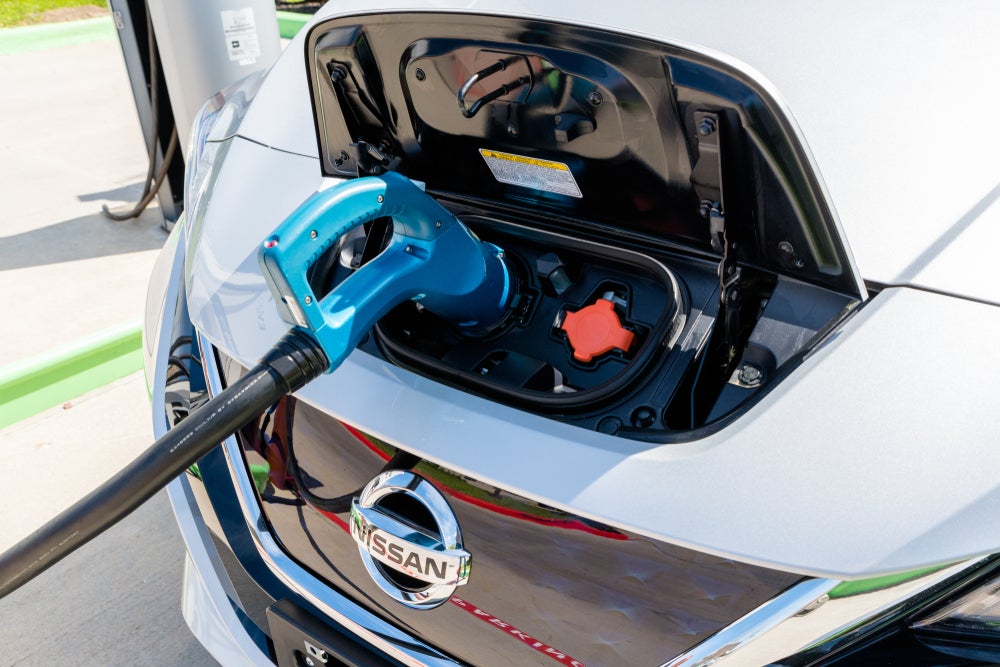
Affinity schemes could find
their days numbered as salary sacrifice schemes grow in popularity,
finds Steve Moody.
When it comes to growing new business
volumes, leasing companies have a problem: the company car market
tends to remain fairly stable in size over time, give or take
annual fluctuations, meaning that they are essentially fighting for
a bigger share of the same pot all the time.
So any new avenue for sales is always gladly seized
upon – the firm that manages to strike a rich vein of new customers
will grow its volumes and profits, after all. For some time one
such route to growth has been affinity schemes. Under these
schemes, cars are supplied to employees of firms who perhaps do not
qualify for company cars, or to their relatives, using the
advantageous terms that the leasing company can secure, because it
taps into the retail market through an indirect route.
But the market for affinity schemes has only ever
been small, and now it seems that salary sacrifice schemes are
likely to force them into even more of a niche.
How well do you really know your competitors?
Access the most comprehensive Company Profiles on the market, powered by GlobalData. Save hours of research. Gain competitive edge.

Thank you!
Your download email will arrive shortly
Not ready to buy yet? Download a free sample
We are confident about the unique quality of our Company Profiles. However, we want you to make the most beneficial decision for your business, so we offer a free sample that you can download by submitting the below form
By GlobalData
‘Little future in affinity
schemes’
Roddy Graham, commercial director of
Leasedrive Velo and chairman of the Institute of Car Fleet
Management, sees little future in affinity schemes as salary
sacrifice takes over.
“Our own experience suggests that affinity schemes
are on the way out, and will be overtaken by salary sacrifice
schemes,” he says.
“From an organisational standpoint, salary
sacrifice not only sees the company pay a more tax-efficient
remuneration and reduced National Insurance [NI] contributions, but
salary sacrifice also ticks all the right boxes in terms of
eliminating the ‘grey fleet’ risk, enhances corporate social
responsibility standing and meets duty of care
responsibilities.
“From an employee standpoint, salary sacrifice
offers the opportunity of enjoying the benefits and status of a
company car at a lower than expected cost, with the savings on
income tax and NI contributions outweighing their benefit-in-kind
contributions. They also enjoy the use of a more fuel-efficient,
fully-serviced and maintained new car with comprehensive insurance
provided by the employer.”
 Low take-up
Low take-up
Phil Peace, director of sales at Hitachi
Capital Vehicle Solutions reckons that the fleet provider is not
seeing high take-up of affinity schemes.
“We don’t do many affinity schemes now,” he
says. “In early 2000 we had a team of people, but now it’s just a
couple, as it is a reasonably low proportion of the portfolio,
unlike salary sacrifice, where we’re seeing more and more
interest.”
The fact that affinity schemes encroach on other
areas of the market can be a problem, especially as some
manufacturers will take the view that an affinity scheme sale is
effectively replacing a retail sale, and so are keen not to be seen
to be stepping on the toes of dealers by offering terms.
Alphabet’s Mark Sinclair believes the two areas–
affinity and retail – intertwine, adding: “What often seems to be
the case with quotes for funding through an employer is that they
get the figures and a reasonable discount quote and then go to the
local dealer.
“In most cases with traditional affinity schemes,
unless the manufacturer supports it in a big way it is possible for
a dealer to compete.
“So take-up has been quite low. If the manufacturer
has specifically supported a scheme then they have generally done
quite well. They’re stable products, a ‘nice to have’ offering, but
not a big growth area.”
David Yates, marketing director of ALD Automotive,
reckons that while salary sacrifice is still relatively new in the
marketplace, he is seeing significant interest from the fleet
company’s customer base and from new prospects – but thinks there
is a place for more traditional affinity schemes.
“Affinity schemes are generally well supported
where the population can be ‘ring-fenced’ to prevent the offer
being diluted into the general marketplace,” he says.
“Manufacturers will often provide strong financial support if there
is a single badge policy, which many customers are prepared to
agree to in return for higher discounts.”
Marketing effort
Alastair Kendrick, partner at accountancy
firm Mazars LLP, is unconvinced that affinity schemes have much
future at all.
“The affinity scheme is still an offering
by some leasing concerns, but it is a fact that many have got their
fingers burnt and finding that they spent considerable time
marketing the schemes but only achieved a very low take-up,” he
says.
“It is also the case that some of those same
providers have moved in to salary sacrifice, which is a scheme
which is very similar to affinity, other than the car used is a
company car with the employee taking a salary sacrifice to meet the
costs. It is the case that the take-up issues on affinity apply to
salary sacrifice.
“If you are running a voluntary scheme for
employees in a company’s flexible benefit arrangement, what will
the take up be? Will the leasing company’s investment into the
arrangement really pay off? This is a question which time alone
will tell.
“It seems leasing concerns favour salary sacrifice
instead of affinity, seeing they do not bear the risks of employee
default and most of the risks on salary sacrifice, like early
termination, maternity pay and long-term sick leave.”
Remarketing affinity
schemes
But there is another affinity scheme that
in the future could bring useful benefits for leasing companies –
selling end of contract cars to the driver, or other employees.
Roddy Graham, commercial director at Leasedrive
Velo, sees value in selling defleeted cars to employees.
“There are always opportunities to sell defleeted
cars to family and friends and these need to be properly
re-marketed, where the driver has not already expressed an interest
in acquiring the vehicle at the end of the contract period. We find
that vehicles not sold through auction are disposed of in this
way,” he says.
Finding the right
platform
Technology firm epyx has invested heavily
in defleeting cars direct to drivers through its 1link Disposal
Network e-commerce platform – sales have more than doubled from 6%
to 15%, thanks to the Driver Sales Website it launched last year,
which is used by car leasing companies to manage their defleeting
process.
Part of its strength is that it is fully automatic,
based on a series of parameters set up in advance by the fleet
manager. As the vehicle becomes due for disposal, an email is sent
to the driver asking for current details about the car and a buying
price is then generated by the platform based partially on current
CAP valuations.
The fleet offering the car is also able to offer
options such as finance and warranty products through the platform
if it desires.
Ken Trinder, head of business development for epyx,
said: “For fleets, selling direct to drivers in this way is the
lowest-cost and most direct route to realising the value of a
vehicle when it comes to disposal time, while many drivers are keen
to buy their car at a competitive price, usually as their family’s
second car.”
However, warns Alastair Kendrick, there is an issue
around selling cars that employers have to be very careful about –
the disposal needs to be at market value to avoid a benefit-in-kind
implication.
Selling on to family and
friends
Hitachi Capital Vehicle Solutions has had
considerable success selling end of contract cars, either to the
driver as a second car for their family or to other employees
within the organisation.
Peace commented: “For our clients, it works as an
extra benefit for their employees, although in general it tends to
be larger companies that it works for, and for those with a lots of
C-sector cars on fleet, such as Focus and Astra, which are
considered perfect second cars.”
In some cases, up to 15% of end of contract Hitachi
cars are sold either to the driver as a second car for their family
or to other employees within the organisation – giving the company
huge savings in terms of holding, logistics and remarketing
costs.
“I think 15% is pretty good, and across that client
base as an average that would be fantastic – even at 10% to 12% you
would be doing pretty well – and while we’re not there yet, we are
certainly aiming to get there. Key to it is the way you promote and
market a scheme,” Peace adds.
“Most of our customers do sell cars on to
employees, and some do it much more proactively, and get much
better results. We have invested in e-commerce so that we can
present the cars with more detail and pictures and then potential
buyers can register interest and ask us questions.”
Potential for profits
Yates agrees there are a number of issues
to overcome with selling used cars to end users, but there is
business to be done in the area.
“Unlike new cars which provide a level of comfort
to the online buyer with their warranties and ‘out of the box’
experience, used cars can prove harder to sell. However, targeting
employees with a strong proposition to buy (or finance) their
current leased car works well with ALD’s customers,” he says.
But Mark Sinclair is less convinced: “From the
leasing company’s perspective, the problem with an end of lease car
sold to another employee at that company is that you do not know
what the condition is like, as it would not come back to you, so
you do not know things like if tyres are legal, and so on. You need
a really structured process of selling, presenting it and offering
finance.
“Selling to the driver is much easier. It is just
another opportunity to resell the car and for the leasing company
it would save transport, inspection and collection costs.”
Affinity does have a future, but it seems more
likely to be in remarketing rather than selling, while for new cars
there is significant excitement that salary sacrifice can deliver
where other affinity schemes have not. But the lack of enlightened
companies with wide-ranging benefit schemes has hampered affinity
schemes, and it remains to be seen whether the same will happen to
salary sacrifice.







